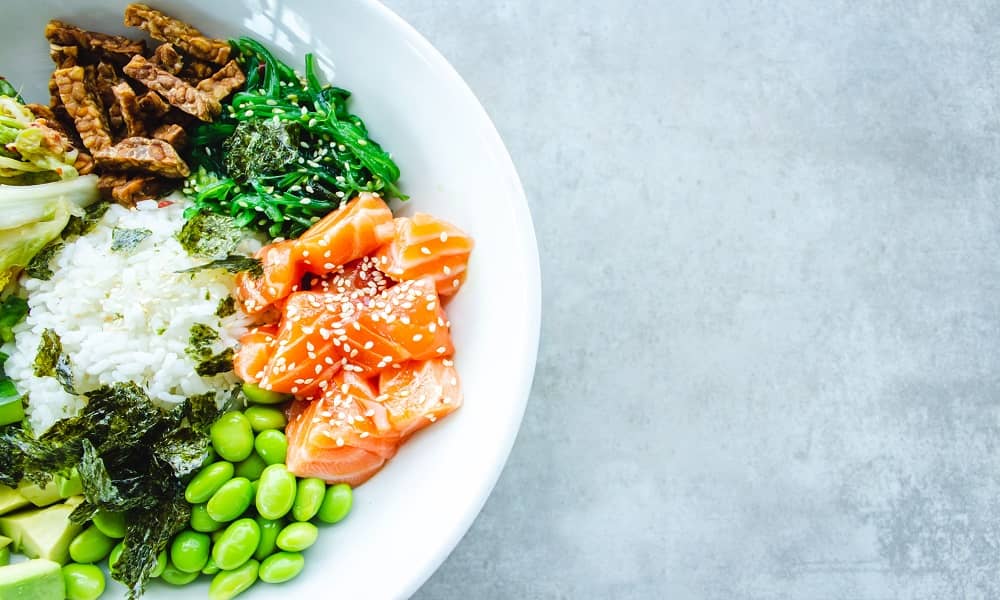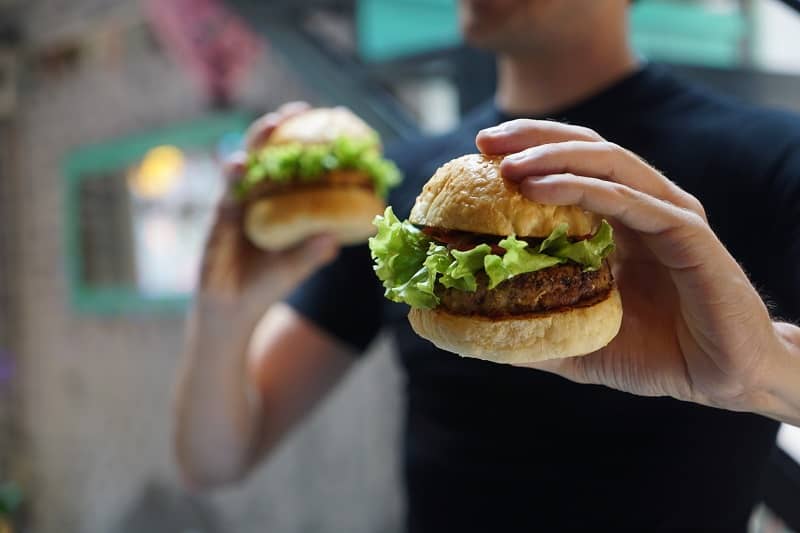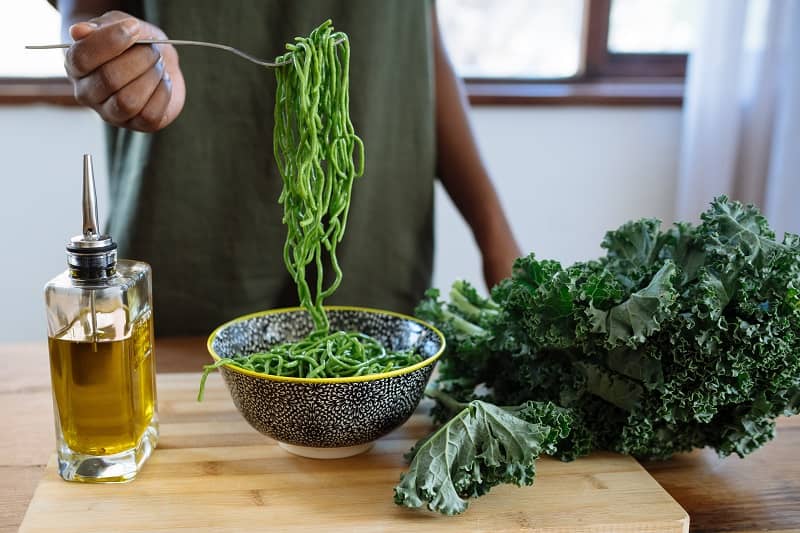
20 Mar Anti-Depression Diet Plan: 10 Superfoods for Mental Health
Diet may not be the sole factor in banishing depression symptoms. Though, it can very well supplement a full-fledged plan in the fight against depression.
Diet has an important role in not only your physical but also your mental health. But can one also beat depression with diet?
Diet can definitely not be a permanent cure for depression. But it definitely has some basis when managed the right way!
There cannot be a particular diet plan for curing depression that will suit everyone.
The best thing which can be done is to follow a healthy diet that is rich in foods healthy for your brain.
What needs to be marked as an important fact is that these diets must not contain any form of processed foods and refined sugars as it contributes to too many diseases including depression!
On the other hand, diets with high protein content, fiber, and complex carbohydrates have the best healthy nutrients.
Thus, when planning a diet for patients with a condition like depression, it is ideal to plan a meal rich in healthy carbohydrates and proteins.
To guide you with the same, here we are with a blog focusing on special foods to combat depression.
Before we get into the details of the food that helps battle depression, let us have a brief look at how depression and diet are two linked factors!
Diet and Depression – Are There Foods That Fight Depression?
Diet plays an important role in your mental well-being.
This can be clearly seen in the form of a whole new branch of medicine called nutritional psychiatry.
This branch of medicine revolves around what one must eat for healthy well-being which includes your overall mental and physical health.
Moreover, there have been many pieces of research that support the fact that food has a vital link to your mind and can often contribute as the cure for depression.
On the other hand, people on a diet rich in high amounts of red or processed meat, refined products, sweets, high-fat dairy products, potatoes, and other such foods were associated with a higher risk of depression.
After reading this conclusion, many of you might wonder whether junk food really increases your risk of depression.
Let’s find out!
Can Junk Food Cause Depression?

According to studies, people who rely on a poor diet that includes all sorts of junk, including processed meat, chocolates, fried foods, and other such things are more likely to show symptoms of depression.
On the other hand, people who kept a distance from such food products and had most of their diets rich in fruits and healthy food were less likely to show such signs.
These results also align with results that showed how a good diet protects one from diseases.
However, we still need more research to establish a clear connection between depression and diet.
But the results till now only point towards the importance of avoiding unhealthy junk!
With this being said, we move forward onto the foods that help fight depression by presenting you with a list you must include in your platter!
[TOP 10] Foods That Fight Depression
Here is a list of 10 foods that fight depression. These will help you stay fit mentally as well as physically.
#1. Oysters
You might feel astonished at how oysters could be linked to depression?
Well, it isn’t something weird for a psychiatry professor at Harvard who is famous for recommending oysters to patients with depression.
So, what could be the reason behind this?
According to research, it was found that people who are likely to have more zinc in their diet have lesser chances of falling prey to depression.
Here comes the role of oysters in your diet!
Oysters are a rich source of zinc, which plays a key role in brain functioning!
Technically, they are one of the best foods to fight depression.
They also provide you with Vitamin B12, omega-3-fatty acids, and selenium, which are the three other nutrients for a healthy brain.
#2. Wild Blueberries

All berries serve as a healthy option for your body, but blueberries need a special place on your platter!
They are a rich source of Vitamin C and polyphenols.
All these compounds act as antioxidants that protect your brain cells from harmful free radicals and promote proper functioning.
For a better boost to the brain, opt for wild blueberries.
Wild blueberries are a special type of blueberries reared and cultured in the Northeast and they are known to have a better level of antioxidants.
You can try making smoothies out of blueberries to give it a fun touch for your kids!
#3. Fermented Foods
According to research, your gut bacteria have a friendly hand in maintaining the healthy functioning of your brain which includes the prevention of depression.
While there are not many pieces of evidence to support the fact. But we definitely know how well the gut microbiome acts in the absorption of foods.
Thus, when you add fermented foods like kimchi, kombucha, miso, tamari, and fermented dairy products like yogurt in your diet, you enhance the good gut bacteria in your body.
This keeps your gut as well as mind happy!
#4. Salmon
Salmon helps in fighting depression in two different ways:
- It provides rich content of omega-3-fatty acids which are essential for your brain.
- It has Vitamin D that keeps you strong and healthy.
Plus, salmon also provides DHA and EPA, both of which have a direct effect on your brain.
Fishes like salmon and sea plants like algae provide you with enough DHA and EPA that other components like eggs, poultry, and nuts don’t provide.
Thus, including salmon in your diet will be really beneficial!
#5. Leafy Greens

One of the best foods that fight fatigue and depression is leafy vegetables because of their high nutrient content!
All of these nutrients are especially associated with mental health and, thus, are very important.
The most nutrients were found in leafy greens!
Leafy greens include spinach, kale, cabbage, and watercress that serve as high sources of Vitamin C, beta-carotene, and folate.
Moreover, getting an adequate amount of folate is crucial as it has special associations with depression!
Thus, make sure you add leafy greens to your daily diet.
#6. Walnuts
Walnut consists of a powerful combo of omega-3-fatty acids, Vitamin E, and antioxidants.
All of these components come together to give you food that helps battle depression.
According to a study which was published recently, adults who ate walnuts regularly showed a significant reduction in their risk for depression.
Moreover, this study also found that the depression scores were 26% lower for people who ate at least 1 ounce of walnut daily and 8% lower for people who ate 1 ounce of another nut daily.
These results were based on the comparison between people who eat nuts and those who don’t!
#7. Lean Proteins

Proteins have a strong correlation with muscle building.
But did you know getting a certain amount of protein act as a superfood and is important for your mental health?
According to different pieces of research, low levels of Vitamin B12 (a vital vitamin found in animal products) can put you at a higher risk for depression.
Here the trick will be to take enough animal products to enhance both your vitamin B12 and protein levels.
Vegetarians usually have lower levels of Vitamin B12 because there are fewer veggies that offer enough of it.
Apart from this, animal products like tuna, turkey, and other such products that offer you lean proteins are also rich sources of tryptophan.
Tryptophan boosts serotonin in your body that enhances your mood and has a direct effect on the brain.
#8. Beans
A high-fiber diet offers you a healthy gastrointestinal tract!
However, what you don’t know is that it also has a role in enhancing your brain health.
According to renowned research, depression is the result of inflammation in the brain, stimulating neurotransmitters to cause altered brain functioning.
So, is fiber involved here?
There are many good bacteria that use fiber to produce short-chain fatty acids that are important for producing an anti-inflammatory effect.
Beans ranging from black beans to chickpeas are good sources of soluble fibers.
Thus, adding beans to your diet will be pretty helpful in keeping away depression.
#9. Whole Foods
Your body must enter a state where it can freely digest foods as close to their natural state as possible.
Many of the processed foods that people go for have a high content of preservatives and flavors that offer no nutritional value.
Thus, instead of going for these junks, go for whole foods that enable easy digestion!
This will keep your gut bacteria happy as well as your whole body healthy and sound.
#10. Seeds

You must have found chia seeds and flax seeds helpful in your weight loss journey. But did you know it also has a role in your mental health?
They act as a good source of omega-3s.
Even a single spoon of chia seeds will provide you with 61% of the omega-3-fatty acids that you need!
However, flax seeds will provide you with just 31% of the daily requirement.
Hence, you can see both the seeds have powerful properties, and they definitely deserve a place in your diet for a healthy lifestyle.
Apart from this, you can try out pumpkin seeds that act as great foods that fight depression and stress with tryptophan!
With that being said, let us also bring to your notice a few foods that you must ignore if you are dealing with depression!
Foods to Avoid with Depression
When coping with depression, you need to be very careful about what you eat.
Diet for depression needs to be planned while taking care of what goes in and what stays.
As you already have an idea about what food is a natural antidepressant, you also need to know about the foods you must avoid.
So, here is a list of foods that you must avoid when coping with depression:
#1. Refined Sugar
Sugar is not usually listed as ‘sugar’ on product labels. Look for these:
- Corn syrup
- Dextrose
- Fructose
- Honey
- Lactose
- Maltose
#2. Refined Grains
All the starch produced in nature is unrefined carbs. ‘Refined’ is typically the form of sugar and starch that don’t exist in nature.
Basically, you need to stay away from synthetic grains.
#3. Alcohol
Alcohol hurts your physical as well as mental health. Hence, it is always ideal to stay away from alcohol.
Though, you can definitely go for a limited amount sometimes.
#4. Caffeine
Caffeine definitely boosts your mornings.
However, it interferes with your nervous system and will crash you at some point during the day.
So, this was the complete guide on what to eat and what not to eat when you’re dealing with depression.
Lastly, here are some Q&As to address some common queries. Have a look before you leave this page.
FAQs
Let’s uncover some diet secrets to cope with depression, shall we?
Conclusion
This blog focused on the diet of the people dealing with depression and laid out a proper food plan on what to avoid and what to stick with.
We also bring out a clear relationship between how diet can have an impact on your mental health!
So, now we hope you have a greater understanding of how you can plan your diet to include foods that fight depression.
Even if you’re not diagnosed with depression, incorporating these foods into your diet will help better your mental health. And we sure need it now more than ever while dealing with the pandemic and social isolation.
With that being said, we come to the end of our blog hoping that it serves you with all the answers.
SOURCES:
Association between junk food consumption and mental health in a national sample of Iranian children and adolescents: the CASPIAN-IV study: Zahedi H, Kelishadi R, Heshmat R, Motlagh ME, Ranjbar SH, Ardalan G, Payab M, Chinian M, Asayesh H, Larijani B, Qorbani M., 2014
Evidence of the Importance of Dietary Habits Regarding Depressive Symptoms and Depression: Int J Environ Res Public Health, March 2020
Understanding nutrition, depression and mental illnesses: Indian J Psychiatry, April 2008



om
Posted at 22:09h, 12 SeptemberThis was very informative. I stopped drinking coffee or alcohol for some time,however l started drinking coffee again.l will stop again now knowing how it affects my emotions and sleep.Thank you very much for the diet and meditation advice also.
Horizon Clinics
Posted at 11:10h, 17 SeptemberThank you for sharing your comments, Om.